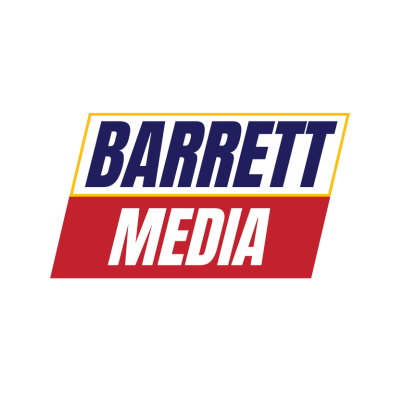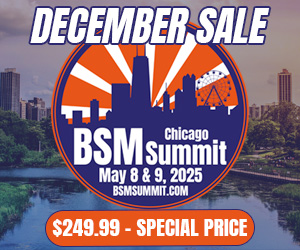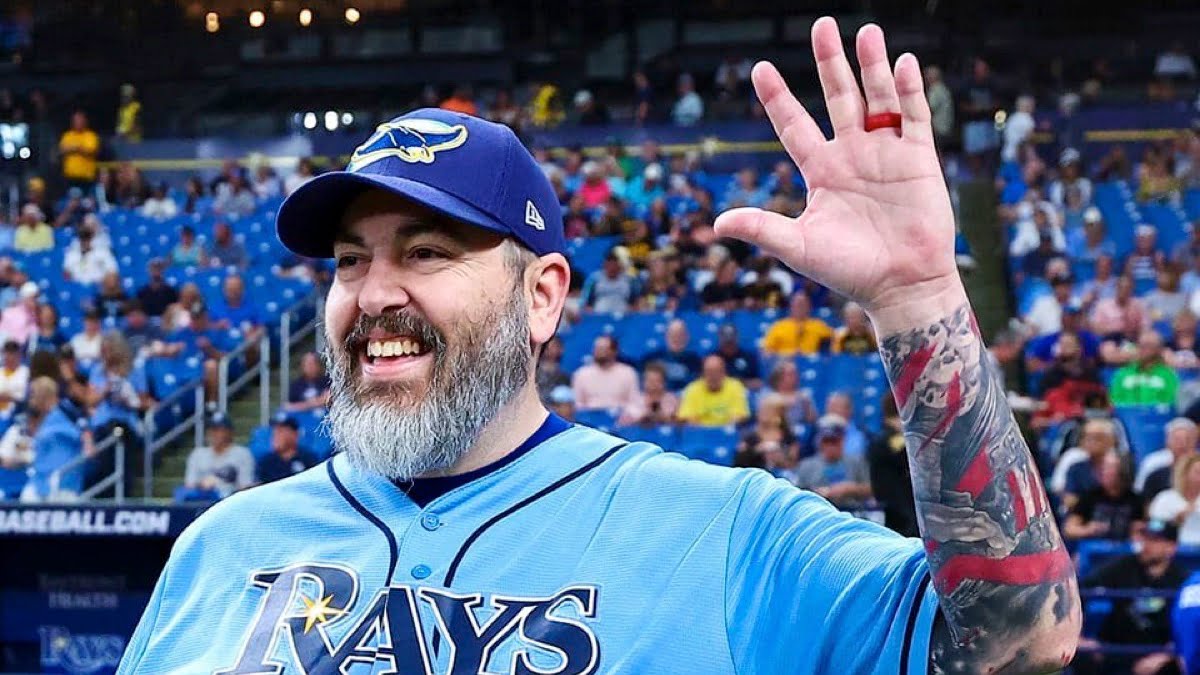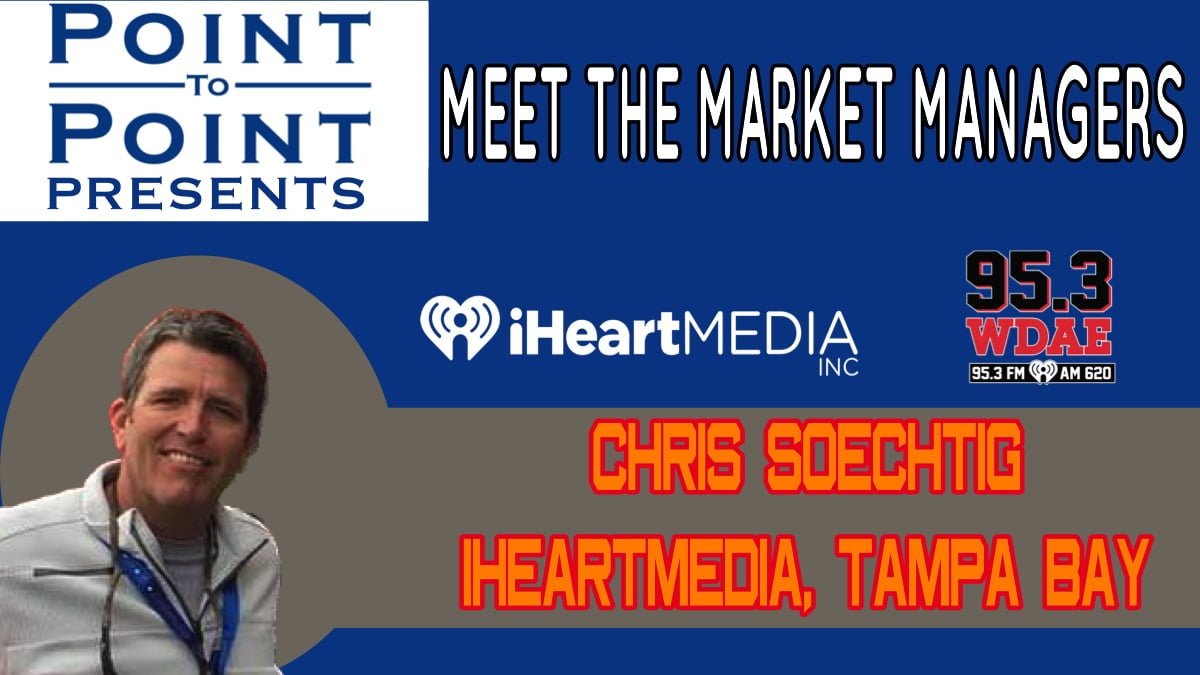The newest host at 1110 KFAB, Emery Songer, is experiencing a significant moment in his career. As a former producer at NewsRadio 1040 in Des Moines, Songer strongly desired to host his own talk show. He remembers walking into the WHO studio on chilly Iowa mornings, where Hall-of-Famer Van Harden would review his daily show preparation.
At WHO, Songer learned the true impact of local radio. The station employs world-class talent and sounds like New York and Chicago radio stations.
In April, NewsRadio 1110 KFAB was searching for Ian Swanson’s successor. Swanson departed after receiving the opportunity of a lifetime to work as a Press Secretary for Sen. Pete Ricketts. KFAB’s Program Director Scott Voorhees told BNM he was searching for a “radio person.”
After listening to several fill-in hosts, Voorhees reached out to Songer, who was producing at WHO and filling in for some of the station’s top talent.
After a few shows at KFAB as a guest host, Voorhees approached Songer and offered some suggestions on how he could improve. At that point, it became evident that Voorhees had found the right man for the job.
Emery Songer is an anomaly by industry standards. In his early 30s, he came up as a sports guy, and at one point, he couldn’t imagine doing anything besides calling play-by-play. As he grew to understand the business, he eventually expanded his skillset, gaining valuable experience in all facets of radio.
Songer shared with BNM some of his valuable experiences in Iowa, how he plans to make a significant impact in Omaha, how his father’s connection to the business allowed him to find his path, and whether he feels pressure to court a younger listening audience as the youngest talk show host at KFAB.
Ryan Hedrick: Tell us about your previous experience as a morning show producer at 1040 WHO Des Moines.
Emery Songer: My dad worked behind the scenes at a radio station in my hometown in Ottumwa, Iowa. When I started there, I was calling baseball and softball games. I was a last-minute replacement to call some games; it was just a summer job.
A couple of years in, I started to get better at it, and I had a couple of great mentors who walked me through some of the ways that I could listen to myself and be a little more critical of what I was hearing. When you start tasting success or feeling better, you have a drive to always be chasing that carrot.
I was the first person to raise my hand or try to master as many different things as possible. Sometimes it’s hard to master things when there are so many different skills that you’re trying to work on at any one time. I was trying to be as good as possible at any aspect of the business I was exposed to, and that included sales, production, and hosting.
That also included some backend stuff like building clocks and promotions. Those are some of the things that, when you do them and start getting a grasp of them, you realize how valuable those things are to you.
RH: You mentioned your father’s influence on your radio career. Could you share how exactly he shaped it?
ES: He made me not ever want to do radio because I was a completely rebellious child for most of my childhood. I was a good kid, and I didn’t get into trouble, but I wanted to carve my own path in life. I knew that when I got into high school, my dad worked at a radio station, and I spent a lot of time at the radio station when I was growing up. I just wanted to find my own thing. I was certain I was going to be an athletic director or a coach of a sports team, maybe even a teacher of some kind.
One day, my dad contacted me and said, ‘Hey, our sports guy left for a different job; we really need someone to call Ottumwa High School baseball and softball games, you’re going to apply to do this, or you’re going to a fast-food joint and flipping burgers this summer.’
The station knew me because my father had been there for 12-13 years at that point, so they had seen me grow up. They were confident I could do the job, and I would do it for an affordable amount for them.
My dad never pushed me. He never said that I should do more of this. He gave me words of encouragement that my work sounded good. He was not on the broadcasting side of it, so he didn’t ever try to act like I should do this or I should do that.
As I got into the broadcasting business, I realized how deep it was besides just the guys that got to talk on the radio. He (Dad) didn’t push me, but he always advocated for me. I think that was the right effect because I ran and stumbled into finding a passion for the industry on my own.
RH: As you switch from a job centered on sports to hosting an afternoon news/talk show, what do you anticipate to be the main differences or obstacles?
ES: When I first got the job in Des Moines, that was a concern because the producing job was on Newsradio 1040 WHO. My passion lied in sports. I did some news coverage when I was in Oskaloosa, but it was very much sports-oriented. Sports is where much of that money comes from in radio, especially local radio. I was doing TV shows that were within the media group I was with, and I was calling every sport imaginable, but I think that’s what showed them I was capable of making the transition.
Whenever a sport like soccer, track and field, lacrosse, or volleyball popped up, I did everything I could to learn as much as possible about that, so all that (work) sounded solid even though I know I’m no expert at those sports. At the same time, being able to broadcast and sound like you know what you’re talking about is a skill within itself.
When I was a kid, it was all about sports. I would talk about sports all the time to the kids at school, I would talk about them to my teachers and my coaches, and I got so confident just talking to people about sports by the time you threw a microphone in my face; it didn’t feel super foreign. I didn’t get stage fright because I know what I was talking about.
As I grew and I learned that there are other things in this world that people need to know or care about; that’s when I started educating myself about that. You feel as if you’re learning that, confident enough to broadcast, so you know as you get more and more expertise or authority on the subject matter, you already have the confidence that you can exude on the radio.
As long as you’re having a conversation with people, and I’ve learned that from the best, Van Harden, Bonnie Lucas, Maxwell Schaeffer, Amy Sweet, Jeff Angelo, and Simon Conway, all local, great talents at WHO Radio in Des Moines, and learning how to have those conversations every, single day, even if it’s something that I am not an expert on. I think there is some connection that you can make with your audience as you’re learning because you’re still open and honest.
RH: As a producer at WHO Radio, what did you learn about the preparation required for hosting?
ES: Preparation is so underrated. As a play-by-play broadcaster, you’re preparing so much; you’re gathering statistics, especially when you’re talking about high school kids. I felt like there was no way it could be harder than that. It is; it’s way harder than that. Here, you really have to know what you’re talking about.
If you don’t know, which I’m going to be the first person to tell you when there are things that I’m trying to learn as we go, you’re always thinking about it. Then you want to try and find five, six, or seven sources of different opinions to help formulate your opinion because everybody these days is thinning the news and topics in a way that’s pandering to a certain audience because they want to get clicks, views, or listens.
That makes it difficult to get the facts on what is happening on a variety of topics and issues. Van Harden probably had 90 minutes worth of prep work under his belt when I waltzed in there at 4:15 in the morning while he was hosting that morning show.
That’s why he won Marconi Awards, and that’s why he’s in the Iowa Broadcasters Association Hall of Fame. You learn from a guy like that to realize that your prep work is never really done. You will want to go back and figure out ways to describe that better or if there are more developments in that story. A proper news person or a proper personality is going to put the proper information in front of the listener. I’ve learned from the entire crew at WHO Radio that they’ve always gone on the journey with the listener on every topic.
RH: As you start your career in broadcasting, you will encounter various experiences, some of which may be positive and successful, while others may present challenges and difficulties. How do you plan to navigate these highs and lows effectively?
ES: I am probably 90-95 percent of America that every six months of my professional life, up to this point, I have had a minor crisis where I ask myself, ‘Am I doing what I really love? Am I doing what I’m supposed to be doing? Is this the calling I’m supposed to have in this world?’
I have a lot of other passions in life. I’m a huge animal lover. I’m a huge nature guy. I love being out in nature. I think anybody that is in our industry has had those thoughts that they might want to do something else. The hours are generally not too friendly with people, and it’s quite taxing to have to put yourself out there every day, you have to be up. That’s something that I have really learned to handle better over the years. Any of my personal crises that I may have, I could possibly ruin other people’s days by bringing that into the office.
This opportunity for me is one that I know I can do. It’s one that I have wanted. I’m not saying that if this had not materialized, I would have done something else because I love talking on the radio. It’s really the only professional thing that I’ve done regularly. I do feel like the challenges of the media business, a lot of times, correlate with people to job security.
I don’t look at it that way. I know I can be valuable by learning as many tools and tricks as possible. I didn’t do that because I was afraid for my job; I did that because I wanted to know how to do everything I could.
This opportunity is one that is going to keep me happy. Not only do I get the chance to talk about the things that I want to talk about and interact with the listeners in a way that I would like to, but I also get an opportunity to be in the community and feel like I am important and that to me is incredibly fulfilling.
RH: Are you feeling any pressure to take the station to new heights and attract younger listeners who may not be familiar with AM radio?
ES: I am incredibly young for somebody who will be on AM radio every day. While it’s not going to 100% be on my shoulders, you have a guy in the morning show, Gary [Sadlemyer], who has been at KFAB for almost 50 years and is one of the true legends of broadcasting. He has his role to play too.
Gary adds so much credibility to the radio station, and every topic you talk about every single day is on the shoulders of what he was talking about in the morning, and that’s not lost on me.
Then you have the guy who’s programming the station [Scott Voorhees] hosting a show in the mid-morning [daypart], and he’s obviously trying to drive [KFAB] into a direction where the younger audience might want to give AM radio a try. And then you throw in me a guy in his early 30s who is getting his first real crack at hosting every day.
I have a lot of experience in community-building relationships, know how to talk on the air, and am willing to learn about different things. I bring a perspective that doesn’t sound as perfectly well-rounded, but I am representing a different generation on the air. If I can get some people around my age to tune into 1110 KFAB and try it in the afternoon, they might be like you know what, this is a little bit more of what I am listening for. This is a little more of the stuff I would enjoy tuning into.
At the same time, I also know that if you’re listening to the radio, that FM dial has been ingrained in everybody’s head; you know, you almost forget that AM radio is a thing if you’re 25 years old, you’ve never been trained to have to do that. You don’t have to find us just on AM radio. You can find us on the iHeartRadio app, or you can find us on social media. We’re going to be giving you the news and entertaining you all over town in different ways.
That has to do with trying to utilize every possible media at our fingertips. I don’t feel a ton of pressure personally, but I know I will have a role to play in trying to get those people that are my age to remember that the AM dial is there.
RH: What do you envision your legacy as you look forward to a long career at KFAB?
ES: To have somebody that is in their early 30s hosting an AM radio news/talk show is not something that happens very often in any market, let alone one as respected as this one with KFAB. [I want my coworkers to know that] he helped take us into the future. Again, I don’t feel pressure to do that myself, but I could be an important pin that drops to move us in that direction.
As a community member who lives in Omaha, who lives in Council Bluffs, or anywhere around here that will listen to us every day on KFAB, I want them (listeners) to feel like he was one of us.
He didn’t start out as one of us because I’m not one of them, and I’m going to be very open about my history, my love for Iowa, and the fact that I am learning a new city on the fly. I want them (residents) to feel like he really wanted to be here, and he made himself one of us, was enthusiastic about it, and would go onto hilltops and broadcast about how great Omaha is.






